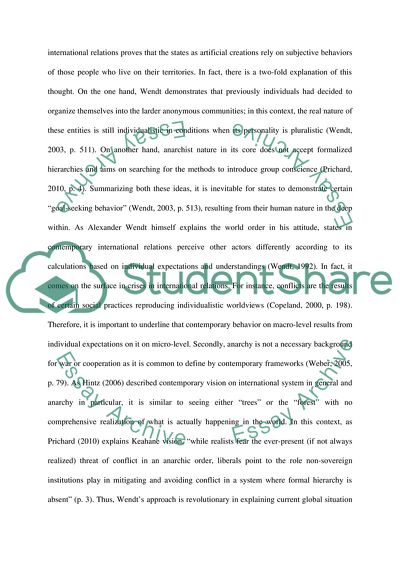Cite this document
(“Is Alexander Wendit right that anarchy is what states make of it If Essay”, n.d.)
Retrieved from https://studentshare.org/social-science/1672552-is-alexander-wendit-right-that-anarchy-is-what-states-make-of-it-if-so-what-are-the-implications-for-ir-theory
Retrieved from https://studentshare.org/social-science/1672552-is-alexander-wendit-right-that-anarchy-is-what-states-make-of-it-if-so-what-are-the-implications-for-ir-theory
(Is Alexander Wendit Right That Anarchy Is What States Make of It If Essay)
https://studentshare.org/social-science/1672552-is-alexander-wendit-right-that-anarchy-is-what-states-make-of-it-if-so-what-are-the-implications-for-ir-theory.
https://studentshare.org/social-science/1672552-is-alexander-wendit-right-that-anarchy-is-what-states-make-of-it-if-so-what-are-the-implications-for-ir-theory.
“Is Alexander Wendit Right That Anarchy Is What States Make of It If Essay”, n.d. https://studentshare.org/social-science/1672552-is-alexander-wendit-right-that-anarchy-is-what-states-make-of-it-if-so-what-are-the-implications-for-ir-theory.


